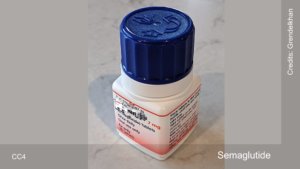The healthcare landscape in the United States faces a significant challenge as hospitals nationwide contend with a critical shortage of intravenous (IV) fluids. The shortage is a direct consequence of Hurricane Helene, which caused severe flooding in North Carolina, impacting Baxter International’s primary production facility.
Baxter International’s North Cove facility, responsible for producing about 60% of the nation’s IV fluid supply, was forced to cease operations due to flood damage. As reported by CBS News, this disruption has led to hospitals receiving less than half of their usual IV fluid shipments. Health systems like Mass General Brigham have been compelled to implement conservation measures, while other facilities have postponed elective procedures to manage their dwindling supplies.
In response to the crisis, Baxter International announced its intention to resume production in phases, aiming to restore full capacity by the end of the year. The company is also collaborating with federal agencies to expedite recovery efforts and minimize the impact on patient care. José E. Almeida, Baxter’s CEO, emphasized the company’s commitment to deploying all necessary resources to resolve the issue swiftly.
The American Hospital Association (AHA) has called on the federal government to declare the IV fluid shortage a national emergency. By invoking the Defense Production Act, the AHA hopes to accelerate the production and distribution of these vital medical supplies. Dr. Chris Derienzo, AHA’s chief physician officer, stressed the importance of this intervention, noting that the shortage affects patients across the country.
IV fluids play a crucial role in medical treatments, from managing dehydration to supporting surgical procedures. Kenneth J. Perry, an emergency physician, highlighted the essential nature of IV fluids in emergency care, urging hospitals to adopt strategic measures to handle the current scarcity. This includes prioritizing the use of fluids and adjusting treatment protocols as needed.
To alleviate the pressure on the healthcare system, other IV fluid manufacturers such as B. Braun and ICU Medical are increasing production. These companies are taking proactive measures to boost their output and support the market during this critical period. They have also placed their products on protective allocation, encouraging healthcare providers to explore alternative methods for hydration and fluid management.
The current crisis echoes similar challenges faced in 2017 after Hurricane Maria, which also led to significant supply shortages. Drawing lessons from past experiences, hospitals are working diligently to ensure patient care remains unaffected despite the constraints. Dr. Paul Biddinger of Mass General Brigham reiterated that hospital operations continue as normal, thanks to effective contingency planning.
As the healthcare system navigates this crisis, the importance of resilient supply chains and comprehensive disaster preparedness becomes apparent. While immediate efforts focus on restoring IV fluid supplies, there is a need for long-term strategies to prevent future disruptions and enhance the system’s overall resilience.







Be First to Comment